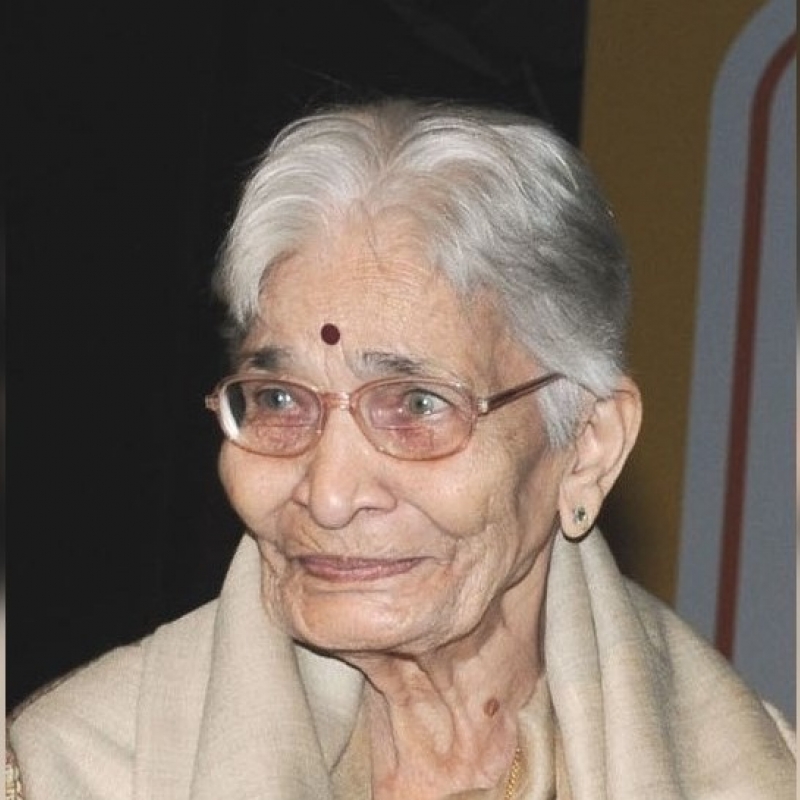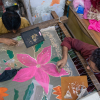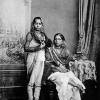Vijaya Mulay, who passed away on May 19, 2019, was an important figure in India’s film society movement. Along with the likes of Satyajit Ray and Marie Seton, she was a part of various collectives such as the Patna and Delhi film societies and, in 2000, became president of the Federation of Film Societies of India. We remember the eminent film historian, documentary filmmaker, writer and educationist, who shaped and refined film sensibilities in India. (Photo Courtesy: GODL-India)
At the 2012 National Film Awards, Akka (elder sister)—as Vijaya Mulay was affectionately called by film enthusiasts across India—was the head of the jury for the best writing in Indian cinema. In her address at the award function at the prestigious Vigyan Bhavan, she blasted the festival directorate. The reason? Their lackadaisical approach towards distinguishing between ‘blog writing’ and ‘serious journal writing’ had forced the jury to go through thousands of articles to select one for the award. She ended her speech advising the festival directorate to wake up to new media realities and sort out the confusion, much to the surprise of the audience—which included the then president of India, Pranab Mukherjee.
That was Akka—frank, straightforward and rebellious even in her nineties, wanting to reform issues and standing up for what she strongly believed in. For the film society movement, she was as important as the British film critic and Satyajit Ray’s biographer, Marie Seton. Akka worked with Seton to ensure the formation of the Delhi Film Society (DFS) and the Federation of Film Societies of India (FFSI). As an education officer in the 1950s and 1960s, she also ensured the spread of the film society movement in the Central Board of Film Certification (CBFC), the University Grants Commission (UGC) and the Satellite Instructional Television Experiment (SITE), the first Indian experiment with satellite TV. Along with Ray and film critic Chidananda Dasgupta, Akka ensured government patronage to the budding film society movement in Delhi. From the formation of two pioneering societies—in Delhi and Patna—to the formation of the FFSI and the growth of the movement, there is nothing that did not have her imprint. She was also a one-time president of the FFSI and a vice president of the FFSI (northern region).
Also Read | Satyajit Ray and his Two Powerful Female Mentors
‘On my return (from the University of Leeds, UK) to Patna in 1949, I actively participated in the nascent film society movement of India. Film societies were the only institutions where cinema different from the commercial run-of-the-mill kind could be seen. Some of us, therefore, started the Patna Film Society. When I was appointed as the Education Officer to the Central Ministry of Education and moved to Delhi in 1954, I found more like-minded people like myself and we started the Delhi Film Society. Later, when eight film societies came together to form the Federation of Film Societies of India in 1959, with Satyajit Ray as its founding President, Chidananda Dasgupta, the well-known film critic and founder member of the Calcutta Film Society and I were elected as the first joint Secretaries,’ Akka recalled her initial days with film societies in a Nation Film Archive project—‘As Others See Us: Films on India’.
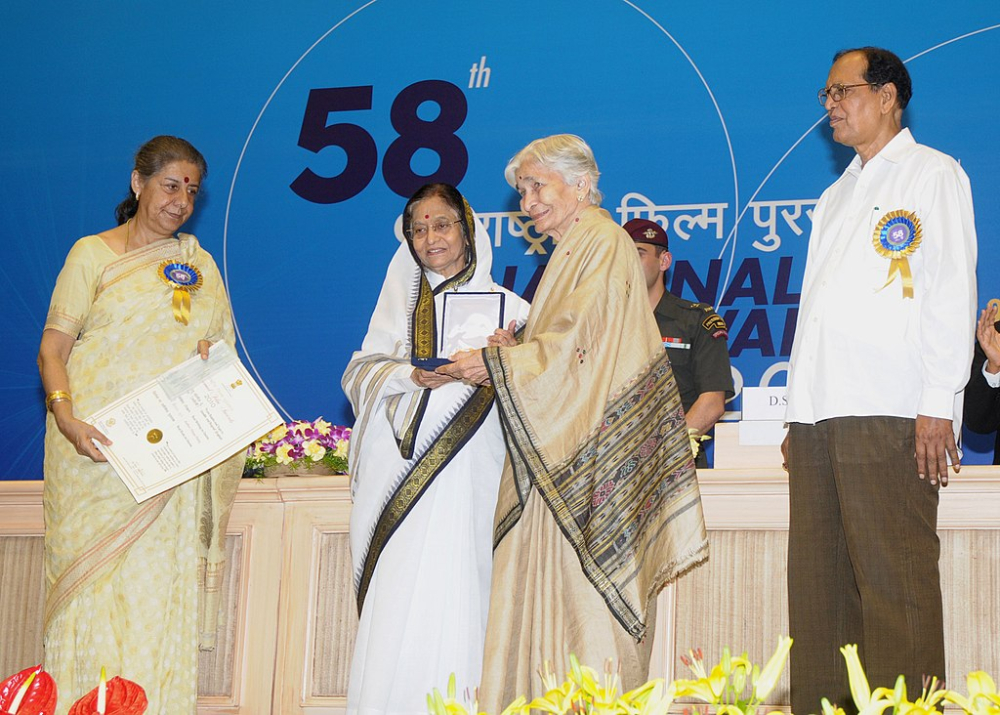
‘We were all building the new India and never thought our efforts will lead to a movement or new genre of films. But we did our part,’ a nonagenarian Akka told the author in a series of interviews. Akka’s reflections gave a sense of history to the film society movement. Indeed, it was all a patriotic act by a generation that saw the transition from colonial rule to self-governance in India. For Akka and her friends, the film society movement was a search for a new idiom in Indian films, different from the mythological films and melodramas of the nascent film industry of the British Raj and the early days of the new republic.
Her biographers describe her as an eminent film historian, a documentary film-maker, writer and educationist, who shaped how India is viewed by Indian and non-Indian filmmakers alike. Born in the summer of 1921 in Bombay (now Mumbai), Akka was a dear friend to Satyajit Ray, the French filmmaker Louis Malle, the Bengali director Mrinal Sen, who passed away last year, and other film personalities. It was under their influence that Akka was able to shape a unique perspective of Indian cinema that greatly influenced her work.
Also Read | Mrinal Sen: The Film-maker for the 'Larger Minority' of the World
In 1940, Akka accompanied her husband to Patna, in Bihar, owing to a job transfer. For her, the pre-Independence scene in Patna was a complete contrast to the one in cosmopolitan Mumbai. But luckily for her, Patna University allowed women to study privately. This bestowed Akka with an opportunity and she began her bachelor’s degree. In Patna, bioscopes aired English films at half price on Sunday mornings, and it was there that Akka’s love affair with cinema started.
As the wheels of time rolled on, Akka won a state scholarship to study at the University of Leeds. In 1946, she moved to the United Kingdom for a master’s degree in education. The experience that she gained about ordinary British people was quite different from that of the ‘burra sahibs’ (elite and well-off people) back home. ‘I was fortunate to be in England at a time when the performing arts were reflecting new ideas and techniques. The Unity Theatre of workers played to full houses. Films from the Soviet Union and Eastern Europe were running in repertory theatres . . . I also gained a better perspective and understanding of cinematic art, by joining the Leeds University Film Society. Thus, film viewing, which was just a pastime before, became a serious passion,’ Akka wrote in ‘As Others See Us: Films on India’.
In 1949, Akka returned to Patna where she went on to work actively in the local film society. However, in 1954 she shifted to New Delhi after she was appointed the education officer by the government of India. Her love for cinema drove her to find time for films and she not only founded the Delhi Film Society, but soon after, in 1959, she—along with Ray and Dasgupta—founded and led the FSSI. Akka even went on to become its president in 2000. The year 1962 saw Akka working in Bombay at the CBFC. Her work at the Censor Board proved a mixed blessing, giving her insight into the biases of panellists that coloured their judgements of a film’s suitability for public viewing.
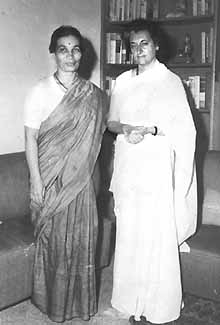
In 1967, she met the celebrated Louis Malle in Kolkata during his visit with a French film delegation. Not only did the two become lifelong friends, but it was Malle and Ray who assisted Akka in making her first film The Tidal Bore, based on the tidal bore that rose from the Bay of Bengal and hit the Hooghly river like a huge wall of water. The Tidal Bore was India’s official entry in the Manheim Film Festival, and was screened across the country by the Film Federation of India.
Also Read | Cultures of Critical Writing on Film
Given her expertise in cinema and her vision for broadcasting, Akka was roped into the Satellite Instructional Television Experiment (SITE), which brought satellite-based TV into India in the mid-1980s. She was hired by UNICEF to test modules for children and, by 1975, she was appointed the head of the Centre for Educational Technology (CET).
The CET prepared educational films for broadcast in over 2,400 villages and produced programming in four languages. Amongst them was the well-known animated film Ek Anek Aur Ekta, scripted in 1974 and directed by Mulay herself. In 2002, Akka was conferred the V. Shantaram Lifetime Achievement Award for documentaries by the government of India at the Mumbai International Film Festival (MIFF).
Today, Akka’s name stands tall alongside other pioneering figures of Indian cinema from the 1940s and 1950s. Apart from the likes of Ray, Dasgupta and the eminent film critic Prof. Satish Bahadur, there were only a few people who contributed as much to the emergence of a good film sensibility in India as Akka, placing Indian films firmly on the global map.
This article was also published on The Indian Express.
